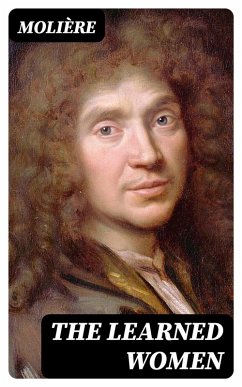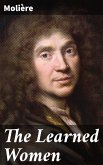In his comedic masterpiece, "The Learned Women," Molière deftly satirizes the pretensions of academicism and the societal constraints of 17th-century France. The play revolves around the tumultuous relationships within a household dominated by intellectual aspirations, particularly through the character of Philaminte, who is bent on acquiring knowledge at the expense of personal relationships. Molière's signature blend of farce, wit, and incisive dialogue illuminates the absurdity of elitism, while also exploring the tensions between traditional gender roles and the emergence of female intellect. The work reflects the broader literary context of the Enlightenment, challenging rigid norms of authority and education with humor and social critique. Molière, born Jean-Baptiste Poquelin in 1622, was a pioneering figure in French theater, celebrated for his sharp observations on human behavior and social norms. Raised in a prosperous family, he was exposed to the intricacies of Parisian society and its evolving intellectual climate. This background inspired him to pen works that fused satire with moral inquiry, making him a critical voice in literature. "The Learned Women" stands as a notable exemplar of his ability to navigate complex social themes with comedy and clarity. For readers seeking an engaging exploration of gender dynamics and intellectual dogma, "The Learned Women" offers both amusement and insight. Molière's keen social commentary resonates with contemporary audiences, making this play a timeless reflection on the pursuit of knowledge and the follies that accompany it. Essential for anyone interested in classic literature, this work invites contemplation on the relevance of its themes in today's world.
Dieser Download kann aus rechtlichen Gründen nur mit Rechnungsadresse in A, B, BG, CY, CZ, D, DK, EW, E, FIN, F, GR, H, IRL, I, LT, L, LR, M, NL, PL, P, R, S, SLO, SK ausgeliefert werden.









